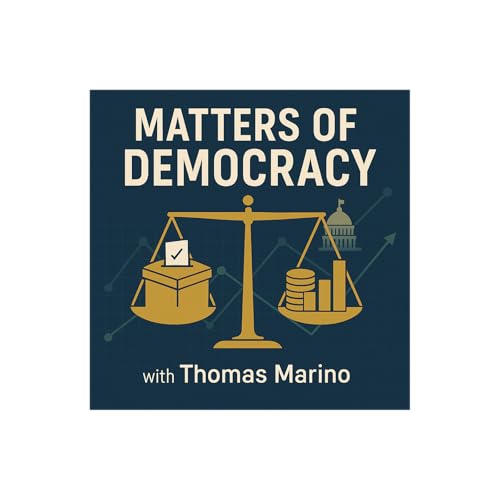recent developments in the U.S. political landscape, revealing significant fractures within the Republican party, a weakening of presidential and party leadership authority, and a continued reliance on executive power over legislative action by the Trump administration.
Key takeaways include a successful bipartisan rebellion in the House of Representatives, led by moderate Republicans, to force a vote on extending Affordable Care Act (ACA) subsidies against the explicit wishes of Speaker Mike Johnson and Donald Trump. This event, coupled with the RNC's strategic pivot to embrace mail-in voting in defiance of Trump, signals a notable erosion of leadership control. Concurrently, Trump's approval rating stands at a precarious 39% in multiple polls, reinforcing his lame-duck status and emboldening internal dissent.
An analysis of a recent primetime address by Trump reveals a speech composed almost entirely of recycled campaign rhetoric, false claims, and self-aggrandizement, with only one new substantive policy proposal: a legally questionable "warrior dividend" for soldiers. The administration's primary governing tool remains the Executive Order (XO), with Trump having signed 221 in his second term—more than in his entire first term and exceeding the full-term totals of his immediate predecessors. Finally, the Republican financial ecosystem is experiencing internal strife with the emergence of a new fundraising platform, "Impact," to compete with the established "WinRed," while Elon Musk has resumed major donations to Republican causes after a brief hiatus.
Fearing voter backlash over expected health-care premium spikes, a group of moderate Republicans from swing districts joined Democrats to force a vote. A discharge petition, which requires 218 signatures to bring a bill to the floor, was successfully completed.
• Key Republican Signatories: Four House Republicans signed the Democratic-led discharge petition, providing the necessary votes:
◦ Rep. Rob Bresnahan (PA)
◦ Rep. Brian Fitzpatrick (PA)
◦ Rep. Ryan Mackenzie (PA)
◦ Rep. Mike Lawler (NY)
defensive move to protect specific House seats. By signing the petition, Fitzpatrick, Bresnahan, Mackenzie, and Lawler have created a political shield. They can claim they successfully "defeated" their own party leadership to fight for their constituents, knowing full well the Senate or the calendar would ensure they never have to face the consequences of actually passing the bill against the wishes of the broader GOP conference.
 2025/12/2315 分
2025/12/2315 分 2025/12/2214 分
2025/12/2214 分 2025/12/1916 分
2025/12/1916 分 14 分
14 分 14 分
14 分 13 分
13 分 15 分
15 分 17 分
17 分
